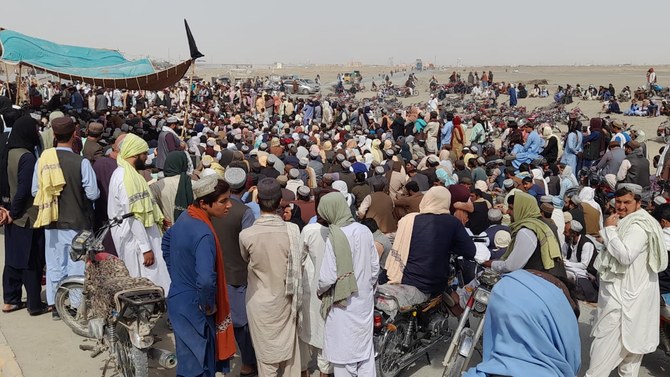On Wednesday, a government delegation was unable to achieve progress in talks with protestors who have maintained a sit-in protest in Balochistan’s Chaman district for several months.
Local tribesmen and daily wage earners have been protesting against new visa and passport restrictions affecting border crossings into Afghanistan and vice versa.
The delegation, consisting of Balochistan Assembly Speaker Captain (retd) Abdul Khaliq Achakzai and Home Minister Mir Ziaullah Langau, engaged in extensive negotiations with leaders of the Laghari Ittehad—an alliance of daily wage earners and members of other political parties—in an effort to resolve issues related to Chaman. However, the discussions concluded without a resolution.
Balochistan Chief Minister Mir Sarfaraz Bugti expressed the government’s commitment to dialogue and urged the team to continue engaging with the protestors, despite their refusal to end the protest.
The extended protest has brought trade activities in the town to a halt, impacting tribesmen on both sides of the border. Sadiq Achakzai, one of the protest leaders, emphasized the challenges faced by the masses and called for the restoration of the previous system by the federal government.
The ongoing sit-in has heightened tensions in the city, which shares a border with Afghanistan. Minister Langau emphasized the importance of compliance with the law amid the situation.
The Chaman border crossing, known as Bab-e-Dosti (the Friendship Gate), is a critical and bustling point of entry between Pakistan and Afghanistan, situated in Balochistan’s Chaman district. It plays a pivotal role in facilitating trade, travel, and cultural exchanges between the two countries. However, it also presents security challenges, including smuggling and occasional cross-border tensions.
Ensuring the smooth operation of the Chaman crossing is vital for the economic stability and progress of the region, underscoring the necessity of resolving disputes and maintaining open and secure borders for legitimate activities.




